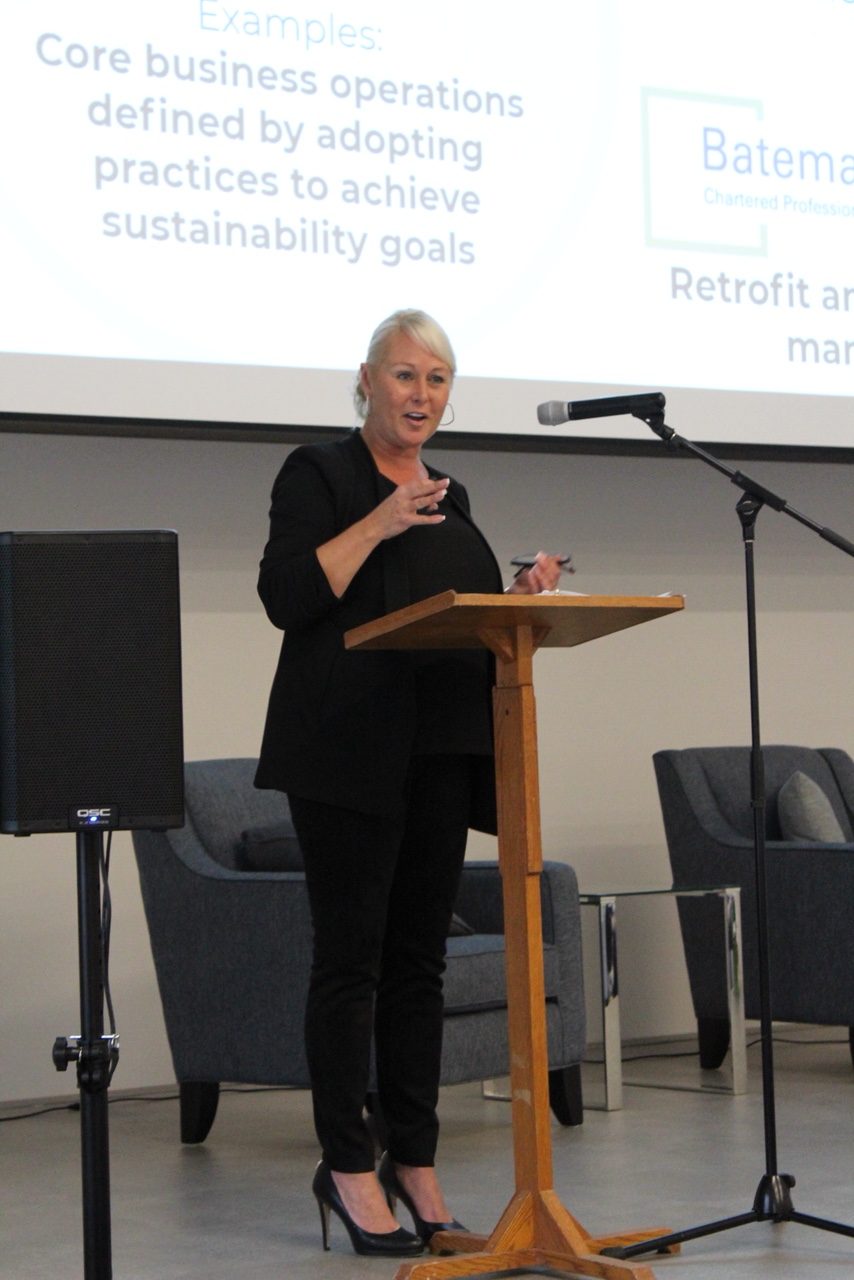
Canadian businesses are turning climate change risks into profitable opportunities and others need to join the trend to avoid being left behind. This was a key message delivered at a recent Executive Briefing on Climate Change seminar in Burlington, Ontario.
Bob Willard, with the consulting practice Sustainability Advantage, told executives that the key to success now and in the years to come is to use energy more efficiently. “Then, electrify everything and employ low carbon emitting energy sources,” he said.
Consumer preferences are creating new markets. There is a growing demand for environmentally sustainable products and services. Addressing climate risks have given companies access to lower costs of capital, increased market valuations and cost reductions. Willard urged the crowd to take advantage of these benefits. “Smart companies are taking advantage of the transition from fossil fuels into renewable energy”.
Willard added that “Investors and stakeholders are requiring these steps be taken.” Executives that have a plan to take advantage of the transition to a low carbon economy, will be well prepared to face the future.
Willard, a sustainability specialist with more than 2 decades of experience advising Canadian businesses, shared a check list that he said would guide the development of a successful climate change business plan.
A successful corporate plan to address climate change would:
- Make the case for action;
- Align with executive responsibilities;
- Integrate into corporate risk management;
- Integrate into the long-term strategic plan;
- Be considered in major decision-making;
- Integrate into disclosure and shareholder relations;
- Integrate with executive compensation plans;
- Be a priority on executive meeting agendas;
- Be included in the C-suite competency map;
- Guide the oversight of lobbying and memberships.

John Lennartz, Vice President for Environment, Energy & Real Estate at Samuel, Son and Co., reinforced these insights. Increased competitiveness in the marketplace is only one of many benefits Samuel has realized by paying attention to climate and energy issues. He told seminar attendees that the Samuel energy management program has also enabled his company to respond to customers that are reducing the carbon footprint in their supply chain. Samuel, one of Canada’s oldest firms, is a key supplier. Energy and carbon reductions are an important risk mitigation for retaining important Samuel accounts.

John Lennartz Speaking at Executive Briefing on Climate Change seminar in Burlington, Ontario.
Samuel reduced their greenhouse gas (GHG) emissions by 7% in 2019 while saving $1.75 M in energy costs. “Our energy management program has engaged our employees and helped us attract and retain employees”, Lennartz added.

Carla Nell Speaking at Executive Briefing on Climate Change seminar in Burlington, Ontario.
Carla Nell, President and CEO of the Burlington Chamber of Commerce also addressed the gathering. She showcased a number of Burlington firms in attendance. She said that these members of her organization had successfully incorporated the actions being proposed to the audience. Small and medium enterprises (SME) make up the bulk of businesses in Burlington and throughout the country. Sustainability strategies can be successfully adopted regardless of size of firm. Nell said the leadership of her Chamber members were showing the way for other SMEs to follow.

Lynn Robichaud Senior Sustainability Coordinator City of Burlington












